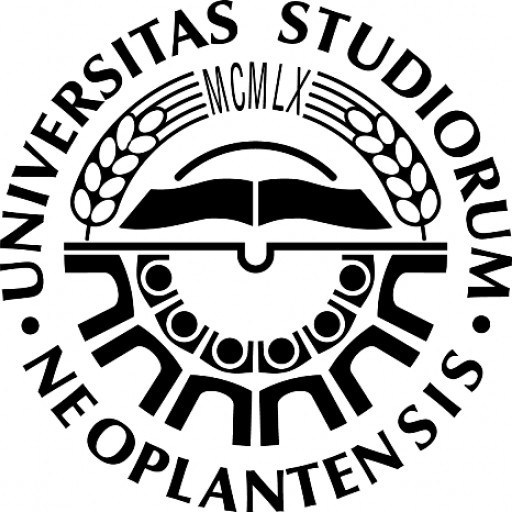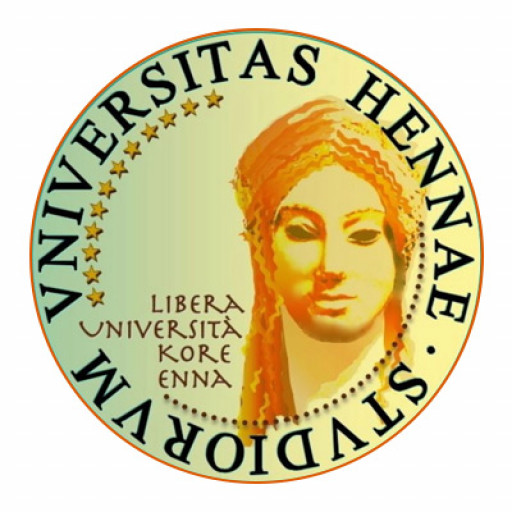Hydraulic, Water Resources and Environmental Engineering is a multidisciplinary program offered by the University of Novi Sad, designed to prepare students for professional careers in the management, design, and analysis of water systems and environmental protection. The program provides a comprehensive education in the principles of hydraulics, hydrology, water resources management, environmental engineering, and sustainable development. Students will gain theoretical knowledge and practical skills necessary for solving real-world problems related to water supply, wastewater treatment, flood control, hydraulic infrastructure, and environmental conservation. The curriculum includes courses in fluid mechanics, hydraulics systems, hydraulic structures, water quality, groundwater management, environmental impact assessment, and modern instrumentation and measurement techniques. Throughout their studies, students participate in laboratory exercises, fieldwork, and project-based learning, enabling them to develop critical thinking and problem-solving competencies. The program also emphasizes the significance of sustainable resource utilization and environmental protection in engineering solutions. Graduates of this program are equipped with the expertise to work in various sectors such as water utilities, environmental agencies, consulting firms, and research institutions. They are prepared to contribute to innovative projects aimed at improving water infrastructure, ensuring environmental safety, and promoting sustainable development practices. The program also fosters capabilities for lifelong learning and adaptation to technological advancements in the field of hydraulic engineering and environmental protection, aligning with international standards and best practices. Through this robust educational foundation, students become capable of addressing the challenges posed by climate change, urbanization, and resource scarcity, ultimately contributing to a healthier and more sustainable environment.
The Bachelor's degree program in Hydraulic, Water Resources and Environmental Engineering at the University of Novi Sad offers a comprehensive curriculum designed to equip students with fundamental and applied knowledge in the fields of water engineering, environmental protection, and sustainable development. Throughout the program, students will explore core subjects such as fluid mechanics, hydraulics, hydroinformatics, water supply and sanitation, and environmental management, gaining a strong foundation in both theoretical principles and practical applications. The program emphasizes a multidisciplinary approach, integrating aspects of civil engineering, environmental sciences, and technology to address modern challenges related to water resources and environmental sustainability.
Students will have the opportunity to engage in laboratory work, field studies, and project-based learning, which foster analytical thinking and problem-solving skills essential for designing and managing water infrastructure systems. Topics covered include the optimization of water resource utilization, flood risk management, irrigation systems, wastewater treatment, and the mitigation of environmental pollution. The curriculum also addresses issues related to climate change impacts on water resources and strategies for adaptation and resilience.
Throughout their studies, students will develop competencies in the use of advanced software and modeling tools necessary for hydraulic analysis and environmental assessment. The program aims to prepare graduates for careers in public administration, environmental agencies, consulting firms, and research institutions. Moreover, the degree provides a solid foundation for those wishing to pursue postgraduate studies or specialized certifications in water and environmental engineering. The University of Novi Sad ensures a high-quality education supported by experienced faculty members and partnerships with industry and research organizations, enabling students to become capable professionals committed to sustainable development and the protection of vital water resources.
Admissions requirements for the Hydraulic, Water Resources and Environmental Engineering program at the University of Novi Sad typically include a completed secondary education with a strong emphasis on mathematics and physics. Applicants are expected to submit official transcripts demonstrating their academic performance in these subjects. proficiency in English is often required, usually evidenced by standardized test scores such as TOEFL or IELTS, unless the applicant's previous education was conducted in English. Additionally, candidates may need to provide a motivation letter outlining their interest in the field and their career aspirations, along with a curriculum vitae highlighting relevant academic and extracurricular achievements. Some programs may also conduct interviews or assessments to evaluate applicants' motivation and suitability for the program. It is recommended that prospective students have a solid foundation in mathematics, physics, and chemistry, as these subjects underpin much of the coursework in hydraulic engineering, water management, environmental protection, and related areas. Prior experience or coursework in computer science and engineering principles can be advantageous. The university may also require a minimum grade point average (GPA) from secondary education, especially for competitive admission. International students might need to demonstrate compliance with visa and residence requirements, as well as health insurance coverage. Finally, applicants are advised to consult the university's official admissions portal for precise and updated information, since requirements can vary from year to year and may include additional documentation or prerequisites depending on the applicant's country of origin.
The financing of the Hydraulic, Water Resources and Environmental Engineering program at the University of Novi Sad is primarily structured through a combination of state funding, student tuition fees, and potential scholarships or financial aid opportunities. As a public university in Serbia, the University of Novi Sad predominantly relies on government support to finance its academic programs, including this engineering specialty, ensuring that tuition costs remain relatively accessible for domestic students. Tuition fees for undergraduate programs are determined annually and are subject to adjustments in line with national policies and economic conditions. International students may have different fee structures, often higher than those for domestic students, but specific figures are provided by the university’s admissions office.
The program's students can also benefit from various financial support options, including scholarships awarded based on academic performance, social criteria, or specific governmental schemes aimed at encouraging engineering education. The university participates in national programs designed to support students in technical fields, which may include subsidies, grants, or low-interest loans. Additionally, Erasmus+ and other international mobility programs occasionally provide funding opportunities for students wishing to participate in exchange semesters abroad, thereby offsetting some costs.
Private funding sources, such as partnership agreements with industry stakeholders and local enterprises, are also involved in supporting research projects, internships, and practical training, indirectly benefiting students by improving employment prospects and career development. Moreover, the university offers various forms of financial assistance for students facing economic hardships, including tuition fee waivers or partial discounts.
Research activities related to the program are often financed through national research grants, European Union funds, and cooperation projects involving industry partners, which contribute to the overall financial sustainability of the educational and research activities within the program. The financing model ensures that students receive quality education and practical training aligned with current industry standards while maintaining affordability and supporting research innovation within the field of hydraulic engineering, water resource management, and environmental protection.
The undergraduate program in Hydraulic, Water Resources and Environmental Engineering at the University of Novi Sad is designed to prepare students for a professional career in managing water resources, designing hydraulic systems, and addressing environmental challenges related to water and environmental sustainability. The program provides a comprehensive education in the fundamental principles of fluid mechanics, hydraulics, water supply, wastewater treatment, environmental protection, and sustainable development principles. Students acquire both theoretical knowledge and practical skills critical for solving complex problems involving water distribution systems, flood control, irrigation, hydropower, and pollution mitigation.
The curriculum emphasizes modern engineering techniques, computer modeling, and environmental assessment methods, ensuring graduates are well-equipped to operate in the fields of water resource management, environmental engineering, and public health. The program includes coursework in hydrology, hydraulics, water quality, environmental engineering, construction, and project management. Laboratory exercises, fieldwork, and internships are integral parts of the program, providing students with hands-on experience and opportunities to apply their knowledge in real-world scenarios.
Graduates will be prepared for employment in governmental agencies, environmental consulting firms, water utility companies, construction firms, and research institutions. The program also aims to foster an understanding of sustainable development goals and the importance of balancing technological advancement with environmental preservation. Courses are taught by experienced faculty members with expertise in hydraulics, water management, and environmental sciences, ensuring high-quality education aligned with international standards.
Furthermore, the program often encourages international collaboration and mobility, allowing students to participate in exchange programs and joint research initiatives. Upon completion, students receive a Bachelor’s degree in Hydraulic, Water Resources and Environmental Engineering, qualifying them for professional practice or further studies in master’s programs. The program’s structure is regularly reviewed and updated to reflect advancements in engineering technology and environmental policy, maintaining its relevance and excellence in education and research.









